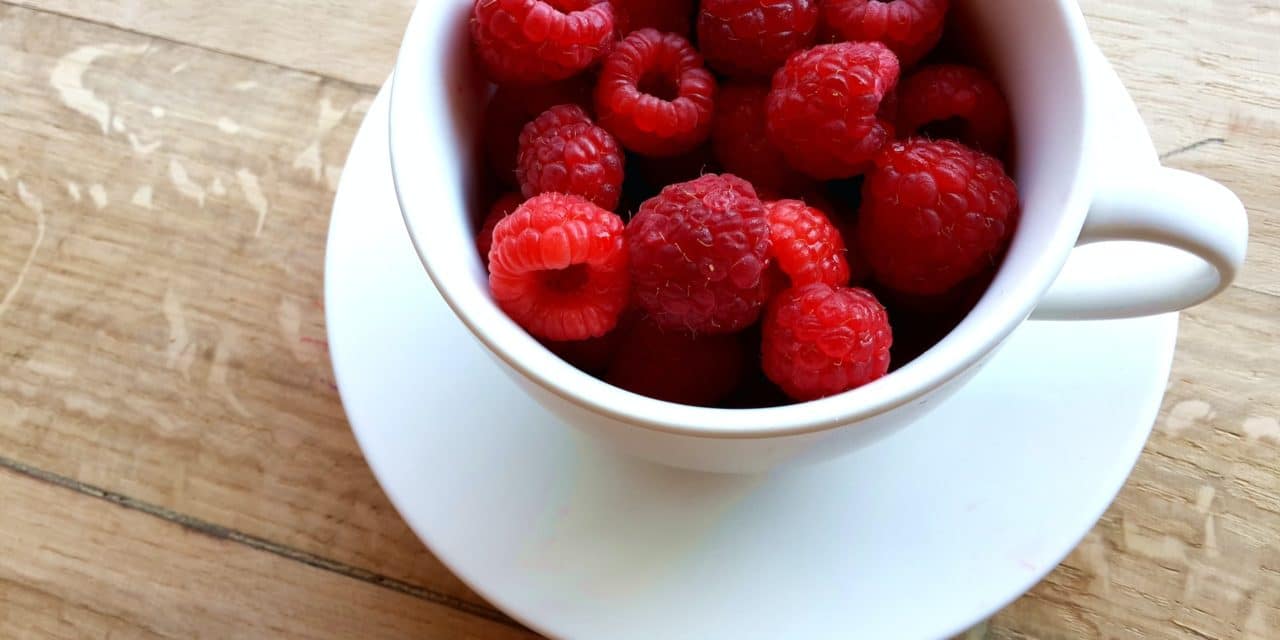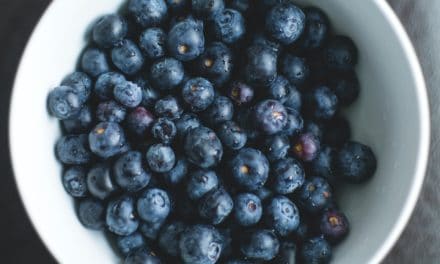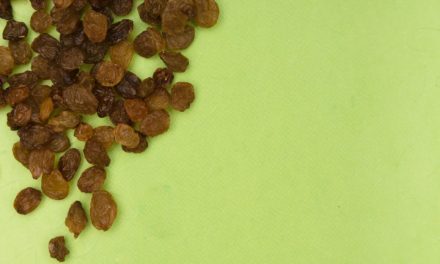[ad_1]
If you have made up your mind to give up sugar, congratulations on your wise decision! An overwhelming amount of research has linked refined sugar to high levels of blood glucose, triglycerides, bad cholesterol, and blood pressure, as well as heart disease, tooth decay, inflammation, and many more.
If you give up table sugar, that means you are probably searching for a substitute sweetener. Many people are already aware that artificial sweeteners such as acesulfame, aspartame, neotame, saccharin, and sucralose are extremely bad for you. That leaves the natural options, such as raw honey, coconut nectar, maple syrup, or dates. These are healthy choices if used in moderation, but after all, they are still caloric and has a negative effect on blood sugar.
Enter erythritol. In recent years, it has become the most prominent natural zero calorie sweetener in the market. It is now a common ingredient found in many low-sugar and sugar-free foods, artificial sweeteners. It is even added to some natural sweeteners such as stevia and monk fruit.
So is erythritol a safe sugar substitute? Does it cause any side effects? Is it really natural? Is it good for diabetics?
What Is Erythritol?
Erythritol is a type of sugar alcohol or polyol, however, it has nothing to do with cocktails or alcoholic beverages because it does not contain ethanol, aka alcohol. Other common sugar alcohols include xylitol, sorbitol, mannitol, isomalt, maltitol, and lactitol.
Erythritol occurs naturally in some fruits such as watermelon, pear, and grapes, mushrooms, and fermented foods like cheese, wine, beer, and sake.
Erythritol was first discovered in 1848 by a Scottish chemist named John Stenhouse. It is up to 80% as sweet as table sugar. Japan has been using erythritol since the early 1990s in candies, jellies, jams, chocolate, yogurt, and beverages as a natural sugar substitute. It has only gained popularity in the US in recent years.
Sugar Alcohols And Digestive Problems
Sugar alcohols are notorious for causing digestive distress for certain people. The reason is because they are fermentable carbohydrates that cannot be broken down by digestive enzymes. Instead, microorganisms in our gut break down the sugar alcohols into smaller particles by way of fermentation.
For people with a healthy gut and a balanced microbiome (gut bacteria, both good and bad), fermentable carbohydrates such as apples, asparagus, blackberries, Brussels sprouts, garlic, onions, and sweet potatoes can be really healthy. They feed beneficial bacteria and help increase their numbers and produce health-promoting compounds such as short chain fatty acids (SCFAs) that protect against leaky gut (gut permeability), cancer, and inflammation.
However, fermentable carbohydrates not only feed the good bugs, the bad pathogenic organisms, like gram-negative bacteria, also thrive on them. They can produce gas and lead to bloating and GI distress. They can also produce toxic by-products like inflammatory endotoxins, cytokines, and lipopolysaccharides (LPS) which are associated with leaky gut and autoimmune conditions.
Therefore, for individuals who have leaky gut and an unhealthy, imbalanced microbiome, the advice is to avoid eating fermentable carbohydrates, like the ones mentioned above, even though they are considered the foundation of a healthy diet. This also includes most sugar alcohols.
How Erythritol Differs From Other Sugar Alcohols
The reason why erythritol is different is because it has the simplest molecular structure. When it comes to the fermentation potential, the mass (molecular weight) and the number of hydroxyl groups (hydrogen and oxygen atoms bonded together) are the determining factors. The higher the mass and the more hydroxyl (-OH) groups a sugar alcohol has, the greater the fermentation potential and risk for digestive discomfort.
Erythritol has the lowest molecular weight (122.1 g/mole) and the least hydroxyl groups (4) compared to xylitol (152.2 and 5), sorbitol (182.2 and 6), mannitol (182.2 and 6), isomalt (344.3 and 9), maltitol (344.3 and 9) and lactitol (344.3 and 9).
According to a study published in the British Journal of Nutrition, erythritol does not ferment or feed any gut bacteria. 90% of the erythritol consumed is absorbed in the gut and excreted in the urine completely unchanged. The 10% of erythritol that made it to the colon, was completely resistant to bacterial attack. Researchers found that no gasses or short chain fatty acids (SCFAs) were produced as a result of fermentation and the erythritol was recovered unchanged after traversing the colon.
For the majority of the population, erythritol is unlikely to cause any GI distress like other sugar alcohols. However, people with an unhealthy gut and microbiome should still exercise caution. It is best to start with a small amount to see if there is any adverse reaction and not over consume.
How Is Erythritol Commercially Produced?
Erythritol is manufactured by fermenting the natural sugar found in corn with a yeast called Moniliella pollinis. Given that 92% of the corn in the US is genetically modified, unless the erythritol is identified as non-GMO, it is most likely that it is derived from GMO corn whose genetic material (DNA) has been modified in a way that does not occur naturally. Therefore, if you are looking for a 100% natural product, you should stay away from erythritol unless it is non-GMO.
Erythritol Does Not Cause Tooth Decay
A three-year clinical study showed that erythritol is even better than xylitol and sorbitol when it comes to tooth decay prevention. Researchers found that erythritol provided a significant reduction of cavities, dental plaque, and the oral bacteria Streptococcus mutants, which is considered a major cause of tooth decay.
Is Erythritol Appropriate For Diabetics And Weight Loss?
Erythritol has zero calories; it basically goes right through the body. It has a glycemic index of only one and does not affect blood sugar. Therefore, it is a safe sweetener for diabetics.
Despite that, one of the problems with non-caloric artificial sweeteners is that they do not get processed by the body the way regular sugar gets processed. When you consume table sugar or other natural sweeteners like honey, the body senses that you are eating “food” and hormones get released to decrease the appetite.
With a non-caloric sweetener, the body may be left unfulfilled, resulting in the desire to eat or drink more. Overtime, if too much erythritol is consumed on a regular basis, it may lead to overeating and weight gain. A recently published study by Cornell University and European scientists found that high consumption of erythritol is associated with increased belly fat and weight in young adults.
The Bottom Line
- Erythritol is the least likely to cause GI distress among the sugar alcohols. Yet, individuals with leaky gut and imbalanced microbiome should still exercise caution. The amount consumed also makes a difference.
- If using erythritol, always make sure it is non-GMO.
- Erythritol is good for dental health.
- Erythritol is safe for diabetics but may not be the best sugar substitute if one is looking for weight loss.
- Erythritol is, generally, a safe sweetener but only use in moderation.
- There are other better sweetener alternatives:
Stevia is an herbal plant that has been used for over 1,500 years by natives from Brazil and Paraguay for sweetening foods and beverages as well as medicinal purposes. Stevia leaves are unique in that although they are very sweet, they have zero calories and do not raise blood sugar levels. In fact, researchers found that stevia helped to improve conditions of people with metabolic syndrome.
Make sure you buy a pure, high-quality stevia product without unhealthy additives such as dextrose (a form of sugar), maltodextrin (another form of sugar, may contain MSG), corn starch (likely GMO), or natural flavors (could be anything).
Monk fruit, also called luo han guo, was first used by 13th century Chinese monks in Southern China as a sweetener. Its extract is 300 times sweeter than sugar but has no calories and no effect on blood sugar. The downside is that it is relatively expensive and not as widely available as stevia. Make sure you buy monk fruit extract that does not contain unhealthy additives.
[ad_2]
Source by Carol Chuang






